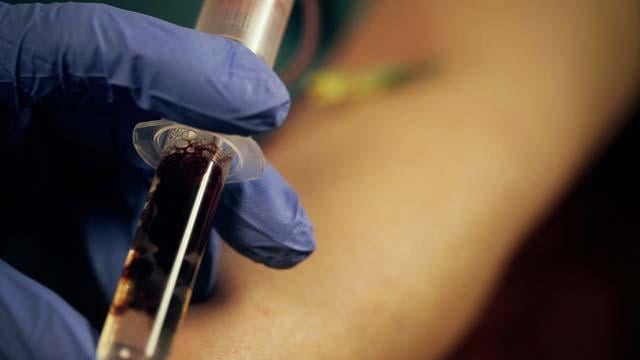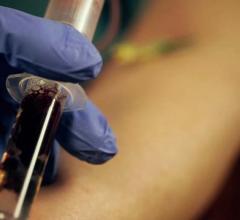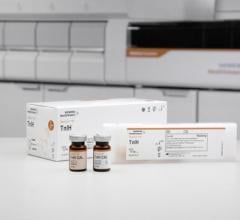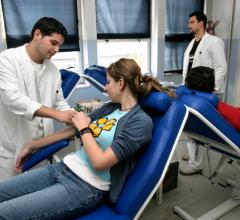
March 26, 2018 — Measurement of cardiac troponin in stable patients with chest pain using the ultra-sensitive Singulex cTnI assay and Single Molecule Counting technology can independently predict moderate and severe coronary disease (CAD), according to a recent study. The results suggest the assay’s clinical utility for accurate, safe and cost-effective evaluation of patients in an outpatient setting.
The study appears in the March issue of the Journal of the American College of Cardiology Imaging.
Cardiac troponin is a well-established biomarker currently used in hospital emergency departments to help diagnose myocardial infarction (MI) in patients who present with acute chest pain. Findings from The Prospective Multicenter Imaging Study for Evaluation of Chest Pain (PROMISE) Trial shed light on the broader potential of troponin measurement in the chronic setting.
"Chest discomfort is one of the most commonly-encountered complaints in outpatient medicine, and represents a major diagnostic challenge as patients often present with a broad range of non-specific symptoms or signs," said James Januzzi, Jr, M.D., physician in the Cardiology Division at Massachusetts General Hospital, the Hutter Family Professor of Medicine at Harvard Medical School, and senior cardiometabolic trials faculty at the Baim Institute for Clinical Research. "Classical history and physical examination for determining cause of chest discomfort is neither sensitive nor specific to identify obstructive CAD as the cause of this common complaint. Having a diagnostic blood test to enhance ability to rapidly and accurately support clinical judgment, identify or rule-out CAD would address these challenges," he said.
With up to 1,000 times more sensitivity than existing technologies, according to Singulex, Single Molecule Counting reveals the presence or absence of disease more clearly and definitively than was possible before. The Singulex cTnI assay using proprietary Single Molecule Counting technology is the first test to quantitatively measure cardiac troponin down to femtogram per milliliter levels, far lower than existing high sensitivity troponin immunoassays, enabling unprecedented insight into cardiovascular disease.
In the PROMISE trial, the Singulex cTnI assay was used to measure troponin in 1,844 outpatients with stable chest discomfort who were randomized to coronary computed tomography angiography (CTA). Investigators found concentrations of the biomarker cardiac troponin I (cTnI) associated with presence and severity of coronary artery calcium (CAC) and obstructive CAD. The median cTnI concentration was 1.5 ng/L; nearly all (98.5 percent) subjects had measurable cTnI and 6.1 percent had concentrations ≥99th percentile for this assay (6 ng/L). Higher CAC scores, as well as more prevalent and diffuse CAD was seen in upper cTnI quartiles (all P<0.001). Independent predictors of cTnI concentrations included age, sex, and CAC score (all P<0.05). After adjusting for demographic and clinical characteristics, cTnI concentrations were significantly associated with obstructive CAD50 and CAD70.
The conventional approach for evaluation of patients with suspected CAD includes stress tests with/without nuclear or echo imaging. Imaging has advantages and potential drawbacks, including low diagnostic yield, higher cost, limited availability, time lag to results, and potential patient exposure to ionizing radiation.
"Participants with higher concentrations of cTnI identified with the very highly sensitive Singulex Single Molecule Counting assay had more prevalent risk factors for coronary artery disease, and on non-invasive imaging, these higher concentrations were associated with increasing presence and severity of CAD," Januzzi continued. "The potential to use this ultra-sensitive assay to supplement clinical decision-making could substantially enhance cardiovascular care in the outpatient setting."
For more information: www.imaging.onlinejacc.org
Related Troponin Content
VIDEO: Use of High Sensitivity Troponin Testing in the Emergency Department
Highly-sensitive Troponin Test Can Detect Myocardial Injury After Non-Cardiac Surgery
New Heart Attack Evaluation Cuts Unnecessary Tests, Time in ER


 October 09, 2019
October 09, 2019 









